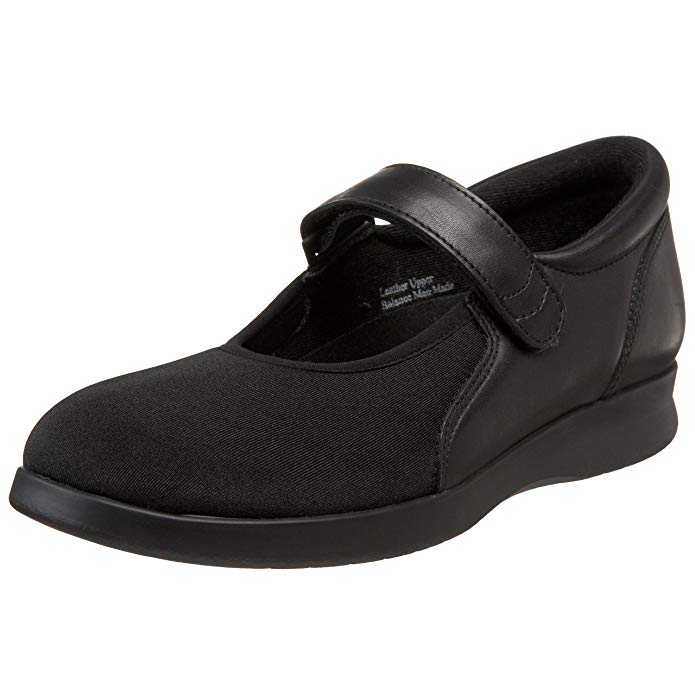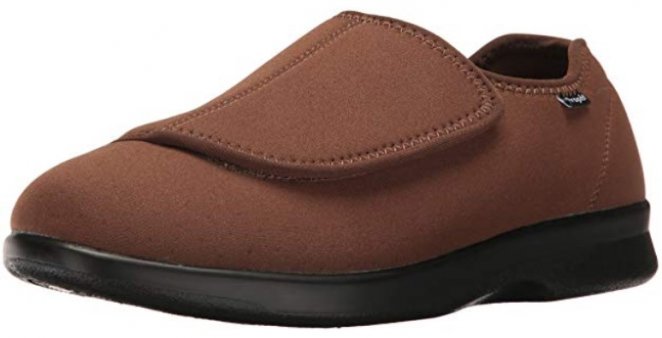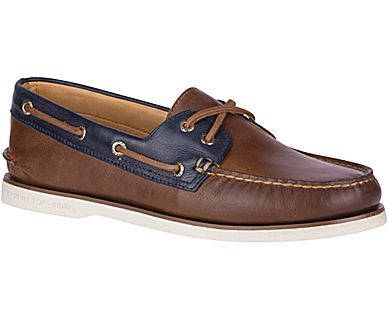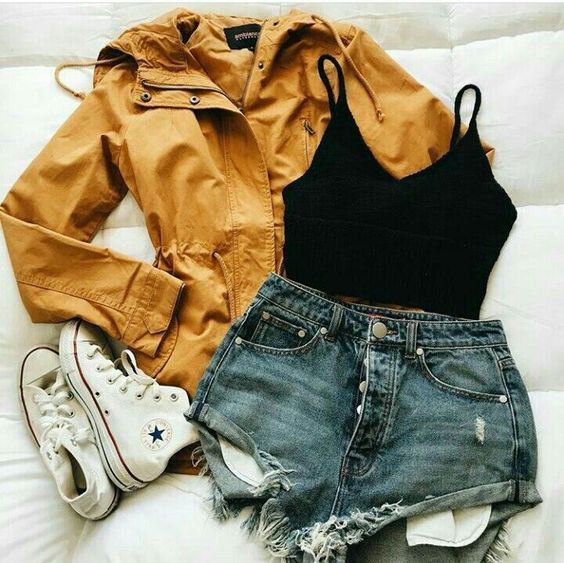Capsulitis is a common cause of shoulder pain. It occurs when the soft tissues that surround your shoulder joint become inflamed or swollen. The cause of capsulitis is unknown. Check out the Best Shoes for Capsulitis, best womens shoes for capsulitis of the second toe and best running shoes for capsulitis.
Capsulitis can be treated with rest, heat and cold therapy, over-the-counter drugs and physical therapy. If your symptoms are severe or don’t improve with treatment, you may need surgery to remove scar tissue from around your shoulder joint.
If you have capsulitis, it’s important that you wear comfortable shoes so you can continue your daily activities while managing your pain. Here are some tips on shoe selection:
Buy supportive shoes that fit well. A shoe that provides good arch support will help keep pressure off your arches and prevent unnecessary stress on other parts of your body such as ligaments and tendons. Shoes should also be wide enough to accommodate swelling in the affected area without causing discomfort or irritation.
Choose shoes with removable insoles or orthotics if needed. If you have plantar fasciitis (inflammation of the band of tissue that runs along the bottom of each foot) or heel spurs (abnormal bone growth on top of the heel bone), removable insoles provide additional support to reduce strain on these areas
Right here on Buy and slay, you are privy to a litany of relevant information on what shoes are best for capsulitis, best tennis shoes for capsulitis, best running shoes for capsulitis of the second toe and so much more. Take out time to visit our catalog for more information on similar topics.
Best womens shoes for capsulitis of the second toe

When you have capsulitis, it’s important to find the right shoes to support and protect your foot. The best shoes for capsulitis will be those that fit properly and are comfortable enough to wear all day long.
Fitting a shoe properly is one of the most important things you can do to prevent injury and pain. When you have a condition like capsulitis, you may need a special shoe. Your doctor or physical therapist can help you find the right type of shoe for your condition.
The best women’s shoes for capsulitis will have:
A wide toe box: A wide toe box allows space for your toes to move freely inside the shoe without pinching or bunching up against each other.
A low heel: A low heel reduces strain on your ankles and knees when walking, which can help reduce pain caused by capsulitis in these joints.
A padded tongue or collar: Padding reduces pressure on the top of your foot and can make walking more comfortable.
Lightweight materials: Lightweight materials reduce stress on joints during movement and allow muscles to work more efficiently during exercise activities such as running or jogging, which can also help reduce pain caused by capsulitis in these joints.
The best shoes for capsulitis are those that are comfortable and supportive. While there is no one shoe that works well for all people, there are some general guidelines to follow when looking for a supportive shoe.

The most important thing is to find a shoe that fits your foot well. It’s tempting to go by size alone, but sometimes different brands fit differently and sizing may not be consistent between manufacturers. Try on several pairs of shoes in different brands until you find the right fit.
Once you’ve found a pair of shoes that fits, look at whether the shoe has any stability features. Stable shoes have a wide base and stiff upper material that helps prevent pronation (the inward roll of your foot). If possible, try on both left and right feet to see which feels more comfortable as this can vary between feet.
You can also try walking around in them for about 20 minutes before making your purchase just to make sure they feel comfortable enough for long-term use (avoid buying online if possible). A good rule of thumb is that if something feels uncomfortable now but you think it will get better after wearing them for a while then it’s probably not the best choice for you!
Best shoes for capsulitis:
Capsulitis is a condition where the capsule around the joint becomes inflamed. This can cause pain and stiffness in the joint.
Capsulitis can occur in any joint in the body, but it most often affects the shoulders and hips.
Shoes that are best for capsulitis typically have a wide toe box that allows your toes to spread out as much as possible. This will help reduce pressure on the capsule around your toes.
If you want to wear shoes with laces, choose ones with a double tongue so that you can tighten them up more than normal shoes would allow.
Capsulite is a condition where the ligaments in your foot are inflamed. This can cause pain, swelling and stiffness in the joints of your foot, particularly around the big toe.
Capsulitis can be triggered by a number of factors such as:
Wearing high heels, flip flops or other types of shoes that don’t offer support or stability;
Jumping on a trampoline;
Being overweight;
A sudden increase in activity levels, such as running or playing sport;
Poor posture at work (for example, sitting down for long periods of time).
Capsulitis is a condition that causes pain in the top of the foot, or the ball of the foot. Capsulitis can also cause pain in the ankle, heel, or toe. It’s also known as “frozen shoulder.”
Capsulitis is a type of bursitis (inflammation of a fluid-filled sac called a bursa). Bursae are found throughout your body and help to reduce friction between muscles, tendons and bones. They have a thin layer of tissue covering them called an epithelium that covers the outside of the bursa.

Bursae are small sacs filled with synovial fluid (the same liquid that lubricates your joints). They reduce friction between bones and tendons, muscles and ligaments. The most common places you’ll find bursae are at your knees and elbows.
Capsulitis of the second toe is a condition where inflammation causes the capsule around the joint capsule to become stiff. This can cause pain, swelling and stiffness in your toe.
What are the best shoes for capsulitis?
Capsulitis affects people of all ages, but it’s more common in women than men. It usually affects one foot at a time and usually develops gradually over time. The exact cause of capsulitis isn’t known, but it may be caused by overuse or injury to your foot or ankle.
If you have pain on your second toe when you walk or run, you should consider buying shoes with a wider toe box that allows your toes to move freely without touching any part of the shoe. That will help reduce friction on your second toe when walking or running and help relieve some of your pain and discomfort.
Here are some of my favorite shoes for capsulitis sufferers:
It’s important to wear the right shoes. You don’t want to wear something that’s too loose or too tight. If your toes are hitting the front of your shoe, it’s too big. If you can’t walk in them comfortably, they’re too small.
If you have capsulitis, you may want to try a shoe with more support than normal. There are several types of shoes that are designed for people with plantar fasciitis, but most of them aren’t designed for those with second toe pain. You may need to ask your doctor or podiatrist for help finding a pair of shoes that will work well for you.
Best running shoes for capsulitis
The answer to this question depends on the type of capsulitis you have and what activities you do. If you have degenerative arthritis in your toes, then you need shoes that can support your foot and fit well. If you have rheumatoid arthritis, then it is important to wear comfortable shoes that allow your feet to breathe freely.

The best shoes for people with osteoarthritis are those that provide support and cushioning but also allow freedom of movement in the foot. A good pair of sneakers or walking shoes will help prevent injury from overuse, especially if you walk a lot or do other types of exercise.
For people with rheumatoid arthritis, it is important to wear comfortable footwear that allows air circulation so that your feet can breathe freely. You should also avoid wearing tight-fitting clothing or socks because these can cause skin irritation around the affected joints.
The best shoes for capsulitis are low-heeled, lace-up shoes.
What Shoes Are Best For Capsulitis?
The best shoes for capsulitis are low-heeled, lace-up shoes. You may also want to consider a shoe with a soft sole.
Here are some of the best options:
1) Tennis Shoes: If you love tennis, then this is an excellent option for you. Tennis shoes have flat soles that offer maximum support and minimal pressure on your toes. They also have a wide toe box so there’s plenty of room for your toes to move freely without getting cramped or sore. And since they’re made out of breathable materials like mesh and leather, they will keep your feet cool even when you’re playing sports in hot weather conditions.
2) Running Shoes: Running shoes are also great options because they offer plenty of cushioning and support while still allowing room for your toes to move freely within their own space. The only thing you need to watch out for is how much cushioning there is — too much could mean added pressure on the top part of your foot which would definitely not be good if you already have problems
If you have a second toe that is bent in the middle, the condition is called a bunion. If you have a second toe that is bent outwards at the joint closest to your big toe, it’s called a hammertoe. A second toe that is both bent and twisted can lead to capsulitis, an inflammation of the capsule that surrounds your joint. Capsulitis can cause pain and swelling in your toe joint.

What Causes Capsulitis?
Capsulitis usually results from repeated stress on a joint due to improper footwear or foot posture. For example, if you wear shoes with high heels or pointy toes, this places more weight on your second toe than normal — which can cause the joint to become inflamed and painful over time. Other possible causes include:
A tight Achilles tendon (the tendon connecting your calf muscles and heel bone)
An abnormal angle between bones or tendons inside your foot
Abnormal pronation (rolling inward) of the foot as it strikes the ground while walking or running



